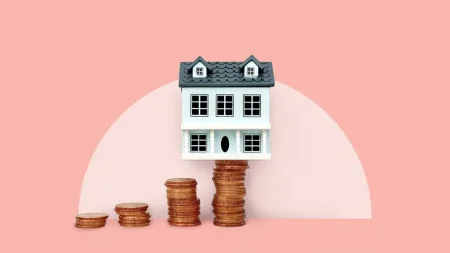This piece was originally published in early 2023 and reflects the author’s financial decisions during that time. The rest of the article has since been updated.
Key takeaways
- With average credit card interest rates well above 20 percent, chasing credit card rewards while carrying card debt doesn’t make any sense.
- To actually “get ahead” with credit card rewards, you have to pay your statement balance in full each month and avoid paying interest completely.
- An exception can be made if your card offers an introductory APR for a limited time, but only until the intro offer ends.
While plenty of people love earning points and miles with credit cards, there’s a hidden secret many rewards enthusiasts don’t like to share. The fact is, some consumers who earn rewards also carry debt on their cards, at least part of the time.
The stats don’t lie. Nearly half of American cardholders (46 percent) carry a credit card balance from month to month, according to Bankrate’s 2025 Credit Card Debt Survey. However, 72 percent of those carrying debt reported that they still try to maximize card rewards, according to Bankrate’s 2025 Chasing Rewards While in Debt Survey.
With the average credit card interest rate well above 20 percent at the time of writing, people who mix credit card rewards and debt aren’t doing themselves any favors. After all, earning between 1 percent to 2 percent back — and even up to 5 percent or 6 percent back in bonus categories — is a losing position when you’re paying credit card interest rates four times higher.
With that in mind, you should only be pursuing rewards credit cards if you have a way to pay your balance in full each month. If you need to carry a balance, that’s also okay, but you should look at low-interest credit cards or any number of 0 percent APR credit cards instead.
How to earn credit card rewards without paying interest
It’s definitely possible to earn credit card rewards without paying interest, mostly because credit cards typically offer a grace period between the end of your billing cycle and when your payment is due. If your credit card offers a grace period, federal law requires this period to last at least 21 days.
I know avoiding debt while pursuing rewards works because I have done it for most of my adult life. While I love credit card rewards, my family prioritizes debt freedom above all else. As a result, I take several steps each month to ensure I don’t pay a dime in interest while earning rewards. These steps include using a monthly budget, tracking my spending, having adequate funds for emergencies and paying my credit cards off every week.
1. Use credit cards in conjunction with a monthly spending plan
One step my partner and I take each month to avoid credit card debt is writing up a monthly budget or spending plan. We happen to use a form of budgeting called a zero-sum budget, which essentially has you allocate all the money you bring in each month toward bills, discretionary expenses and savings goals.
While creating a monthly budget may seem cumbersome or even impossible, you have to remember that it doesn’t have to be perfect all the time. If you have kids, especially, you may just have to estimate or guess what your spending will be in certain months. It may all depend on what is going on.
The point is to have a general idea of how much you are likely to spend within a given month, and how that compares to your income. You should only charge purchases to a credit card you know you can pay in full at the end of the billing period, and you can’t do that unless you know what your expenses are and how much money is coming in.
2. Track spending throughout the month
I also use credit cards to track our spending throughout the month — as in, I log in to our various credit card accounts and add up how much we have spent on various purchases and in all the categories we track. This helps me see how much we have spent in discretionary categories, which, in turn, helps me know how much we have left throughout the month.
Not only does this help me stick to our monthly spending plan, but it helps me know for sure I have the cash in the bank to back up our credit card purchases.
Need help tracking your spending?
If you’re having trouble keeping track of your spending, consider using a budgeting app or spending tracker. Some programs even allow you to view accounts with a partner so that it’s easier to stay on the same page about your spending.
3. Have an emergency fund
Having an emergency or “slush” fund is also crucial if you want to earn credit card rewards without getting into debt. While many experts recommend having an emergency fund stocked with three to six months of expenses, only you can decide how much you need.
The point is, you need to have enough money to be able to pay off your credit card if your monthly budget goes off track. This could happen if you face a job loss or a loss in income, or if you have unexpected expenses that pop up.
Could you pay off your credit cards this month if you suddenly need a new HVAC system? How about if your roof starts leaking and you need an emergency repair? What if your car breaks down?
These are just some of the reasons to have an emergency fund, but there are others. With some cash stashed away for emergencies, you will be in a better position to pay down credit card balances and cover your other bills when your finances don’t go as planned.
Bankrate’s take:
Keep your emergency fund in a high-yield savings account to help your money grow over time.
4. Pay credit cards off weekly
Finally, my partner and I also pay off our credit card balances on a weekly basis and sometimes more often than that. This has helped us stay on top of our finances in several ways, and it is probably the most important thing we do to avoid overspending and credit card debt.
Paying off our credit card balances weekly allows us to:
- Avoid all credit card interest
- Make sure our payments are never late
- Do a better job of sticking to our budget
- Keep our credit utilization ratios low
Paying our balances weekly also forces us to hand over the cash for our purchases on a regular basis, and this helps us feel the real weight of our spending more often. For example, if we discover we have charged the full amount in our budget allocated to groceries by the 25th of a given month and already paid the balance off, this forces us to skip the store and eat what we have at home until the beginning of the next month.
While paying off credit card balances weekly may seem excessive, the entire process only takes a few minutes at most. Since we’ve been debt-free for more than 15 years now, I believe the results speak for themselves.
The bottom line
Credit card debt poses a unique problem for people trying to earn rewards. After all, the best rewards credit cards can entice you to spend more since you’re getting something in return for each purchase — yet, the interest you pay on debt can wipe out the benefit of rewards in a hurry.
To avoid credit card interest over the long haul, it helps to use a written budget and track your spending throughout the month. Having an emergency fund is also crucial since this extra money can help you keep up with bills if you face unexpected expenses or your income drops off.
Paying off your credit card bills a few times per month can also help you “get ahead” with rewards without paying for the privilege. If you take all of these steps, you’ll be in a good position to maximize rewards over time.
Why we ask for feedback
Your feedback helps us improve our content and services. It takes less than a minute to
complete.
Your responses are anonymous and will only be used for improving our website.
Help us improve our content
Read the full article here









